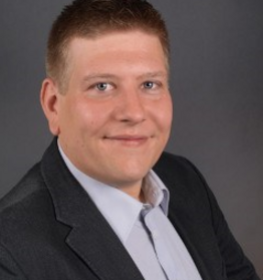Dr. Jörg Schwarz

Dr. Jörg Schwarz is an interim professor for Adult Education and Further Education at PH Freiburg and also an interim professor for Empirical Educational Research at Marburg University. Previously, he has been working in a research project on the social responsibility of science at Marburg University. He spent his postdoctoral phase at Helmut-Schmidt-University / University of the Armed Forces, Hamburg, where he worked on temporality in adult education, having previously completed his doctorate and various research projects at Marburg University.
Emphasising the connections between social structures, organizations and professional work in Adult Education, Jörg Schwarz has worked on professional fields and relational professionalism in adult education, on the socialisation process of adult educators, on professionalization of entrepreneurship counselling and on young researcher’s career trajectories. More recently, he focusses on the (re-)production of time regimes in professional and organizational contexts.
CG13: Exploring Time and Temporal Patterns in Adult Education
Co-Moderators: Prof. Miriam Douglas & Prof. Sabine Schmidt-Lauff
Time is inextricably intertwined with human existence and our experience. Temporality – a more neutral yet multifaceted concept – is widely regarded as a constitutive dimension of all human action and being. Time functions not only as a quantitative measure for describing physical phenomena (motion in place and substance), but also, akin to space, as a categorical framework through which relational aspects of sociality and individuality are constructed. "Time," as Immanuel Kant stated, "is a necessary concept that underlies all our perceptions." (Kant KrV B 52). Learning as action in time. Learning invariably unfolds over time (a) In a chronometric sense (‚learning always takes time‘), and (b) situated within various phases of the lifespan in a chronological sense (‚learning to become a parent‘). Furthermore, educational theories and concepts are inherently embedded within historical contexts. For instance, the notion of lifelong learning has emerged as a modern imperative in response to the accelerated transformations characteristic of contemporary society and the broader narrative of modernization (‚learning towards the future‘). However, these cultural assumptions on the relations between time and learning have become institutionalized in educational legislations (Paid Educational Leave), organisations and programs (informal learning on demand) and thus fundamentally shape the ways of adult educational practice. This comparative group will research the patterns of learning time inscribed in the institutions of national adult education systems, focusing on the level of national / regional laws, organizational processes and program structures. By comparing these patterns, we will be able to highlight different cultural assumptions on the relation between time an learning in adulthood and at the same time, we will become more sensitive for the peculiar temporal qualities lying within them. This sensitivity may also be seen as a “professional time sensitivity” (Schmidt-Lauff & Bergamini, 2017) thus enriching our professional capacities as adult educators.
- Elven, J. & Schwarz, J. (2025): Sustainability and Digital Transformation in Higher Education: An International Comparative Study of University Strategies on Organizational Change. In: WERA (Ed.): Global Perspectives on Educational Research, Vol. 5. London: Routledge.
- Schwarz, J. (2023). Pacing Out Educational Temporalities: Methodological challenges in the measurement of time in adult education research. Sisyphus: Journal of Education 11(1), 83-106. https://doi.org/10.25749/sis.26983
- Schwarz, J., Kleinschmidt, J., Lasi, F., Muhammad, F. I., & Fasanmi, S. A. (2022). Network Governance in Adult Education. Sisyphus: Journal of Education, 10(2), 61–84. https://doi.org/10.25749/sis.25542
- Schwarz, J., Rosemann, Th., Rathmann, M. (2021). Educated for the Digital Transformation?! Students’ Acquisition of Competences for Digital Learning and Teaching During and Past Pandemic Times. EPALE Journal on Adult Learning and Continuing Education, 10. 91-101.


